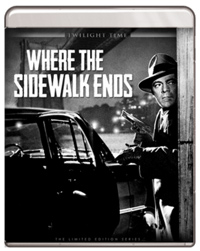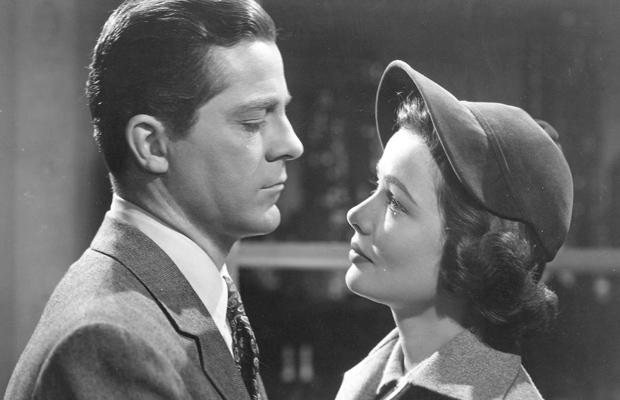
Detective Mark Dixon (Andrews) is called into his superior Inspector Foley’s (Robert Simon) office to face a demotion, while his colleague (Karl Malden), who joined the force at the same time, receives a promotion to Lieutenant. It seems Dixon has a predilection to shoot first, take names later, doling out punishment as he sees fit before culprits have the chance to face the criminal justice system. But his zeal is born out of his desire to distance himself from the reputation of his father, a crooked cop whose actions helped instill a current criminal hierarchy. Dixon bites at the chance to take down crime boss Tommy Scalise (Gary Merrill) when a homicide occurs at one of the criminal’s haunts during a floating crap game. Scalise fingers hustler Ken Paine (Craig Stevens), who he claims brought the high roller to the event, along with a mysterious, beautiful woman, Morgan (Tierney), before monetary issues caused a scuffle, ending in murder. Dixon is tasked with tracking down Stevens, but a series of events leads to Dixon accidentally kill the man. Instead of reporting the event, he covers up the accident, and is soon trying to cover his tracks while trying to expose Scalise, the man he knows is responsible for the first murder.
Where the Sidewalk Ends is a prime vehicle for Andrews, all the way, which may be somewhat of a disappointment for those hoping Tierney would have as large an impact as she did in their earlier pairing. Here, she’s a damsel in distress, an abused woman getting a bit beyond her years to be living with daddy, forced to adhere to whatever standards of conduct as her current romantic interest. Preminger had cast them both in other films following Laura, with Tierney headlining Whirlpool the year prior, while Andrews was a favorite of the director’s, appearing in Fallen Angel (1945) and Daisy Kenyon (1947). And although Andrews didn’t become the household name of other noir staples, like Humphrey Bogart, for instance, as this title indicates, he’s one of the era’s most prolific headliners.
Screenwriter Ben Hecht, who penned many of Hitchcock’s films from the same period, upends the traditional ‘wrong man’ scenario with a crooked cop narrative. But Andrews manages to trace a complex psychological portrait of a man unable to reconcile his base, violent tendencies with his desire to build an honest legacy. Inevitably, he becomes the very thing he hates the most (not unlike a similar scenario Glenn Ford’s cop undergoes in Lang’s The Big Heat).
Disc Review:
Twilight Time continues its trend of rejuvenating famed film noir titles with this masterful transfer, which enhances Oscar winner Joseph LaShelle’s superlative cinematography (he won for his work on Laura in 1944). Presented in 1.33:1, it’s a smooth production of the moody Twentieth Century Fox title. Twilight Time includes the usual isolated score track (by Cyril J. Mockridge), as well as audio commentary with film historian Eddie Muller in the 3,000 copy limited edition release.
Final Thoughts:
A formidable and gritty performance from a gruff Dana Andrews highlights the pensive and anxious Where the Sidewalk Ends.
Film Review: ★★★/☆☆☆☆☆
Disc Review: ★★★½/☆☆☆☆☆
